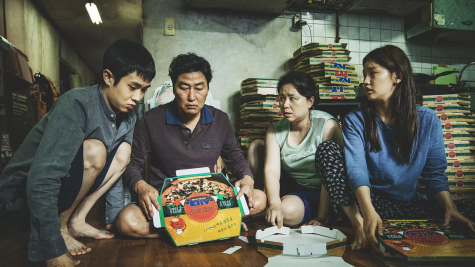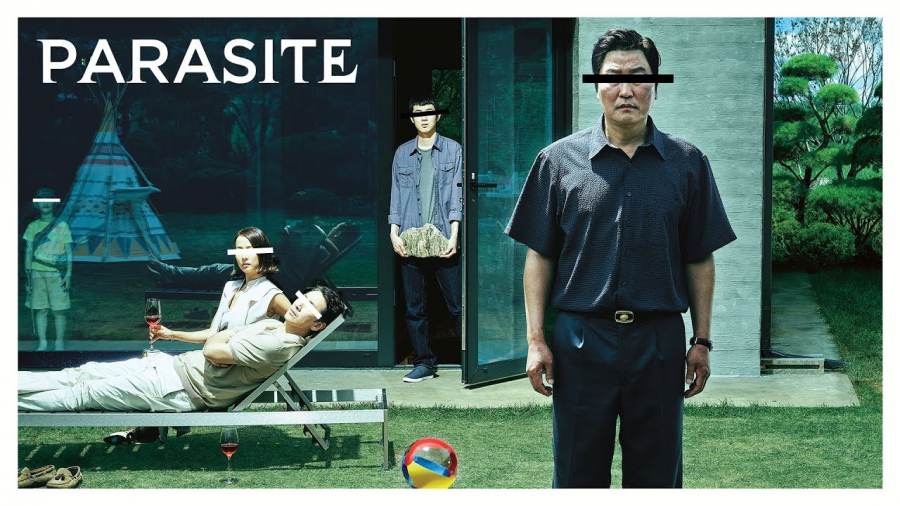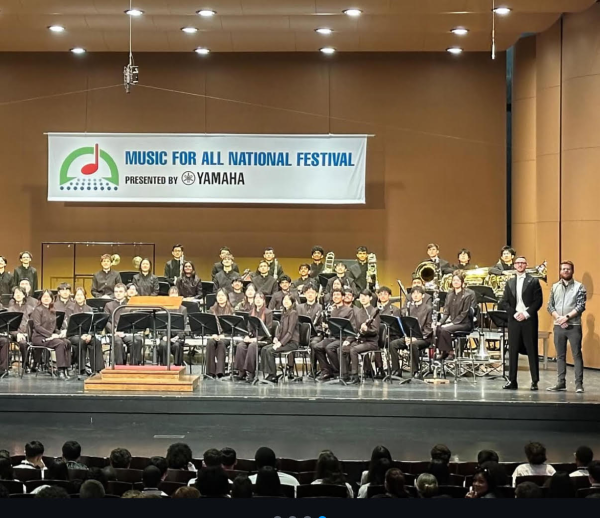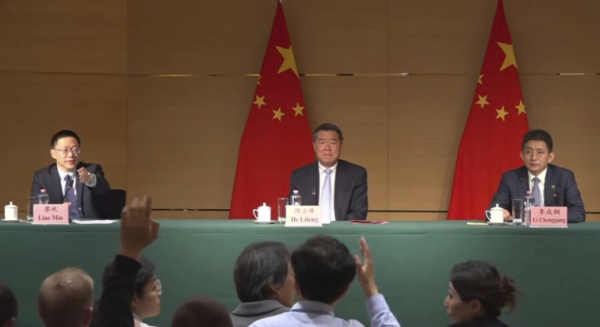Parasite Movie Review: A Tragicomedy For the Ages
Parasite, directed by South Korean filmmaker Bong Joon-Ho, has made its American release in theaters after stirring up quite the positive buzz beforehand. This film tells a socially conscious tale about class divides and the realities that each one faces. It features a down-on-their-luck, basement-dwelling family, the Kims, who lack in cash but make up for it in street smarts and cleverness. This family suddenly finds an opportunity to get rich quick in infiltrating a wealthy family, the Parks, by posing as highly-skilled professionals from being a university-educated tutor to a certified elite housekeeper. Parasite very much lives up to its hype and shines in its tightly-wound narrative, shocking plot twists, and gorgeous cinematography.
What sets this film apart from most others this year would be how it masterfully handles two different tones, all while keeping a consistent vision — many elements in the first half exhibit comedy with a lackadaisical, but fun, nature. I noticed how the tone was similar to those found in the heist genre of cinema, where each main character knows exactly what part they play in their grand scheme of things, all while having a good time doing it. Everything plays out just as they foresee, exciting background music keeps the mood up, and we become trapped into thinking that it will stay this way. All of a sudden, a particular twist in the plot changes the course of the whole movie, leaving you shocked and hooked even further.
Although this duality in tone can be seen as jarring and in poor taste if done wrong, director Bong Joon-Ho builds up meticulous details and story elements beforehand that all make the tonal shifts feel justified and earned. Each of these features has a purpose, and for me to see the tiniest plot points that I forgot about come back in a significant way was mind-blowing. It also helps that all this is shot beautifully, with a stark visual contrast shown between the Kim family’s dirty, claustrophobic neighborhood and the pristine, wide-open mansion of the wealthy Park family, both of which were constructed practically from scratch just for this production.
By emphasizing social classes, this movie begs the question of what makes the poor and rich what they are. In its entirety, we are shown the perspective of what life is like for those on the poverty line. The Kims wake up each day dealing with struggles like getting rid of cockroaches in their basement house, chasing drunks away from urinating through the windows, and desperately trying to find any low-skill job, even if it’s folding pizza boxes for a living. When the golden opportunity of working for the Parks does come for the Kims, we end up feeling happy for them and cheer them on through all of their fraudulent and deceptive schemes. On the Parks’ side, we see that their lifestyle is one of lavish ease. The father seems to be the CEO of a successful company, the mother is a well-to-do housewife, and both the daughter and son are raised around their talents. While all of this is expected of a wealthy family, what is not expected, is that the movie portrays this family as being just as likable as our main characters. These people don’t hate the poor or go out of their way to worsen their lives. Rather, they end up becoming naive and ignorant to many things that the Kims know their way around. We, as the audience, think to ourselves that these people from both families are not inherently evil. Pretty soon, we are satisfied when the Kims are all together now as well-paid alter egos living the high life, but are also happy for the Parks who, for all their ignorance, are still kind to the Kim family. However, even after all this build-up of the Kims working so hard to rise to the top, the story goes the way of the hero’s journey, that is, a much darker version of it. Without revealing too much, we end up seeing what this film is saying to us. Sometimes, no matter how hard we may work to switch around certain circumstances in our lives, this cruel world might have no room for change. It knocks us back to the ordinary world, sometimes in worse shape than before. We do end up having learned something but at such a cost. Yet, the world keeps spinning on, forever turning the cogs of society that are firmly rooted in its vast machine of class. Director Bong said it best by stating, “I’m not making a documentary or propaganda here. It’s not about telling you how to change the world or how you should act because something is bad, but rather showing you the terrible, explosive weight of reality. That’s what I believe is the beauty of cinema.”
After seeing Parasite, I think it best to compare it to a hard-to-swallow miracle pill. This pill may be rough, and it may be a pain to take in, but once you have come to terms with its reality, it gives you a whole new life and new perspectives in a way that true cinema has a knack for doing. Earlier this year, I wrote an article about how the movie industry nowadays is falling in quality. With Parasite, this may have been a blessing bestowed to humankind as an answer to this. I highly recommend this movie, and I think it is one of the best in 2019. After all, it didn’t win the Palme d’Or for nothing.
Article Image – Credit: Neon/CJ Entertainment

Article Image – Credit: Neon/CJ Entertainment

Your donation will help support The Lambert Post, Lambert High Schools student-run newspaper! Your contribution will allow us to purchase equipment and cover website hosting costs.












